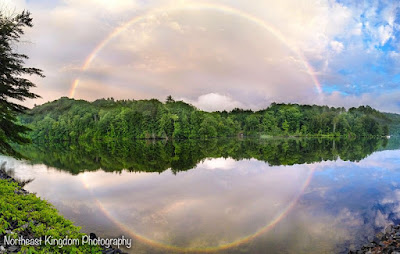When I was a kid, Sunday school teachers told us that when
people die they go to heaven where they spend eternity floating around on
clouds, wearing haloes and playing harps. Unless they were bad, in which case
they burned in hell forever. As I now see it, neither of these scenarios is
true. Rather, we have jobs to perform in the Afterlife, just as we do here on
earth.
What’s Your Job in the Afterlife?
In my earlier post “What’s Your Life Purpose?” I wrote about
soul groups. I identified several classifications or types of souls––leaders,
protectors, teachers, healers, warriors, artists, inventors, explorers, and
caretakers––who incarnate again and again as people who perform these roles.
When we leave earth and return to the spirit realm, we continue performing our
roles there. What we do when we’re “dead” often bears similarities to what we
did during our earthly lives.
My friend, Jocelyn Edelston, who left her physical body in
2002, was a talented artist and loved flowers. On the Other Side, this artist
soul creates new species of flowers and other plants. My life partner, Ron
Conroy, worked as an air traffic controller in his most recent incarnation.
Since leaving his physical body, he’s continued guiding travelers and keeping
the skies safe by communicating through flesh-and-blood air traffic
controllers. Protector souls take care of us here on earth––they’re our “guardian
angels, so to speak; green souls protect plants and animals (see my earlier
post “What Color Is Your Soul?”)
Getting Information from the Other Side
Ever wonder where epiphanies and brainstorms come from?
Those bright ideas that pop into your head or come to you in dreams? Often a
spirit passes the information along to you. Writers admit they don’t know
where some of their ideas originate––they feel as if someone is feeding them
material, and when they read back over what they’ve written the words may not even
sound like their own.
Healer souls convey information to medical practitioners on
this side. Edgar Cayce, known as the Sleeping Prophet, had little formal
education yet he could tap into the vast wisdom of the world beyond to find
cures for thousands of ailing people. Scientists, inventors, and researchers
also receive insights that discarnate entities have passed to them. You’ve
probably had the experience yourself of “knowing” something you couldn’t have
known––did a spirit slip that info to you?
Lately I’ve been reading about crop circles. Researchers
have studied extensively these mysterious and beautiful patterns that appear in
fields around the world, and determined the real ones are caused by something
other than humans. I wonder if nonphysical beings are creating these designs to
send messages to us earthlings. The patterns almost always contain circles––circles
symbolize unity, harmony, and wholeness. Many also feature complex mathematical
details––do these hold information for us too?
Creation Is Our Real Work
From what I’ve read in books by many Afterlife and past-life
researchers, and from what Ron has told me, our real work is to create––both on
earth and in other realms of existence. When we’re not limited by the constraints
of the material world, creation is instantaneous. All we have to do is imagine
something and voila, there is it. According to the Law of Attraction, we do the
same thing in our earthly lives––consciously and unconsciously––it just takes longer.
As the Buddha said, “We are what we think. All that we are
arises with our thoughts. With our thoughts, we make the world.” We’re
constantly creating our realities. By listening to entities who seek to
communicate with us, by paying attention to dreams, “coincidences,” and ah-ha
moments, we can gain valuable insights that will help us navigate the often
choppy waters of earthly existence.
























